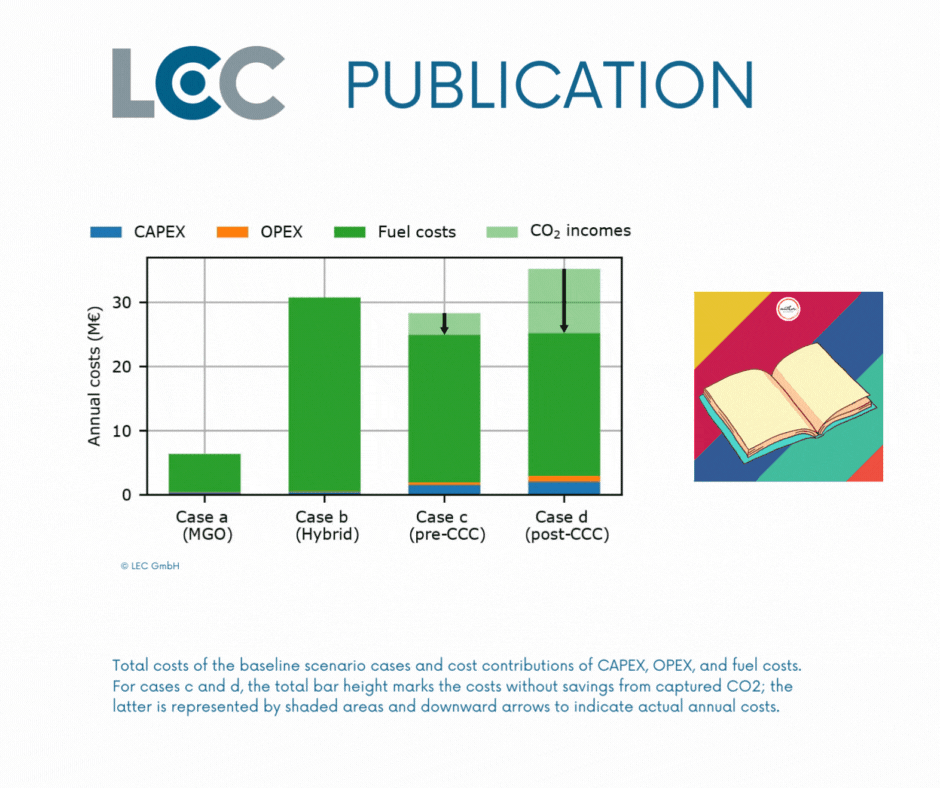Techno-economic performance of HyMethShip compared to other maritime energy systems
Techno-economic performance of HyMethShip compared to other maritime energy systems
This paper is the first to examine the optimal design and operation of onboard carbon capture in combination with renewable fuels in a ship energy system and its economic viability. A scenario is studied for a RoPAX ferry on its course through the Baltic Sea, operating with four different propulsion concepts (fuels and corresponding propulsion systems) over the entire length of the voyage.
As would be expected, operation with fossil marine gas oil (MGO) is cheapest (case a). However, the two variants with carbon capture equipment, which both enable a closed carbon cycle, are more economical than fueling renewable methanol (case b). The chosen carbon capture technologies are an amine-solvent based system for post combustion (post-CCC, case d) and the HyMethShip 👉HyMethShip – Grüne Wende auf hoher See configuration of steam reformation in a membrane reactor as the pre-CCC application.
The techno-economic performance of all systems was analyzed using LEC ENERsim, a new LEC-Software based on a Mixed-Integer-Linear-Programming (MILP) method, which is able to fully consider the complexity of such systems, and to optimize their design and operation.
Optimal design and operation of maritime energy systems based on renewable methanol and closed carbon cycles
Bernhard Thaler, Fayas Malik Kanchiralla, Stefan Posch, Gerhard Pirker, Andreas Wimmer, Selma Brynolf, Nicole Wermuth
[Journal, DOI, Erscheinungsdatum] Energy Conversion and Management 269 (2022) 116064, https://doi.org/10.1016/j.enconman.2022.116064, 1 October 2022
👉 Publikationen – Large Engines Competence Center LEC | Large Engines Competence Center
👉 Publikationen – Large Engines Competence Center LEC | Large Engines Competence Center
#LEC #HyMethShip #greenshipping #sustainableshipping #carboncapture #ENERsim #Chalmers

